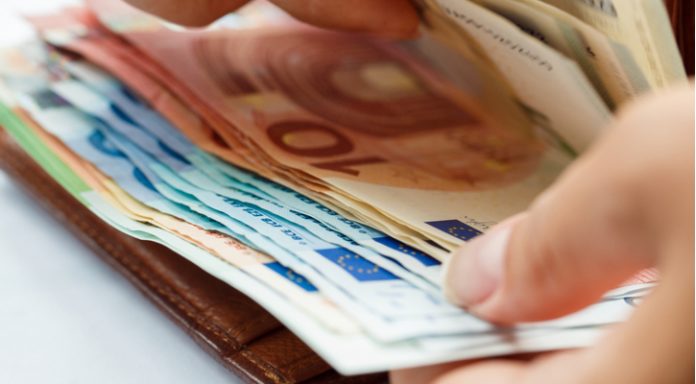The Euro is slipping lower versus the stronger US Dollar for the third straight session on Tuesday. After gaining 4.1% across the previous week, the Euro US Dollar has dropped 1.3% so far this week.
At 08:30 UTC, EUR/USD was trading -0.4% at US$1.0995. This is the bottom end of its daily range amid a mixed mood in the markets and as investors look ahead to US consumer confidence and eurozone inflation data.
Coronavirus Outbreak Stabilising In Europe?
The Euro is trading on the back foot on Tuesday on the last day of a volatile quarter. The World Health Organisation said there were signs that the coronavirus outbreak was reaching its peak. The comments came as the number of new coronavirus cases in Italy was at the lowest level in 2 weeks.
At the same time that numbers are staring to improve Italy is discussing a continuation of its lock down measures into May. The longer that the eurozone’s economy remains in lock down, the deeper the economic hit.
Investors will now look ahead to eurozone inflation data. Analysts are expecting inflation to increase 0.6% month on month in March, up from 0.2%. A weak reading could put more pressure on the Euro.
US Consumer Confidence In Focus
The US Dollar is advancing across the board on Tuesday despite encouraging data out of China overnight. Chinese factory data sparked optimism that the world’s second largest economy was starting to ramp up again, even as much of the rest of the world is grinding to a halt.
Whilst data from China was lifting sentiment, the number of coronavirus cases in the US continued to escalate, deaths from the pandemic reached 3000, in the country’s deadliest day.
Investors will now turn their attention to US consumer confidence figures de for release later today. Analysts are expecting consumer confidence to plunge to 112 in March, down from 130.7 the previous month, as consumers are more pessimistic about the state of their personal finance and the broader economy. A weak reading would be in line with University of Michigan consumer confidence data released on Friday, which had slumped to its lowest level since late 2016.





